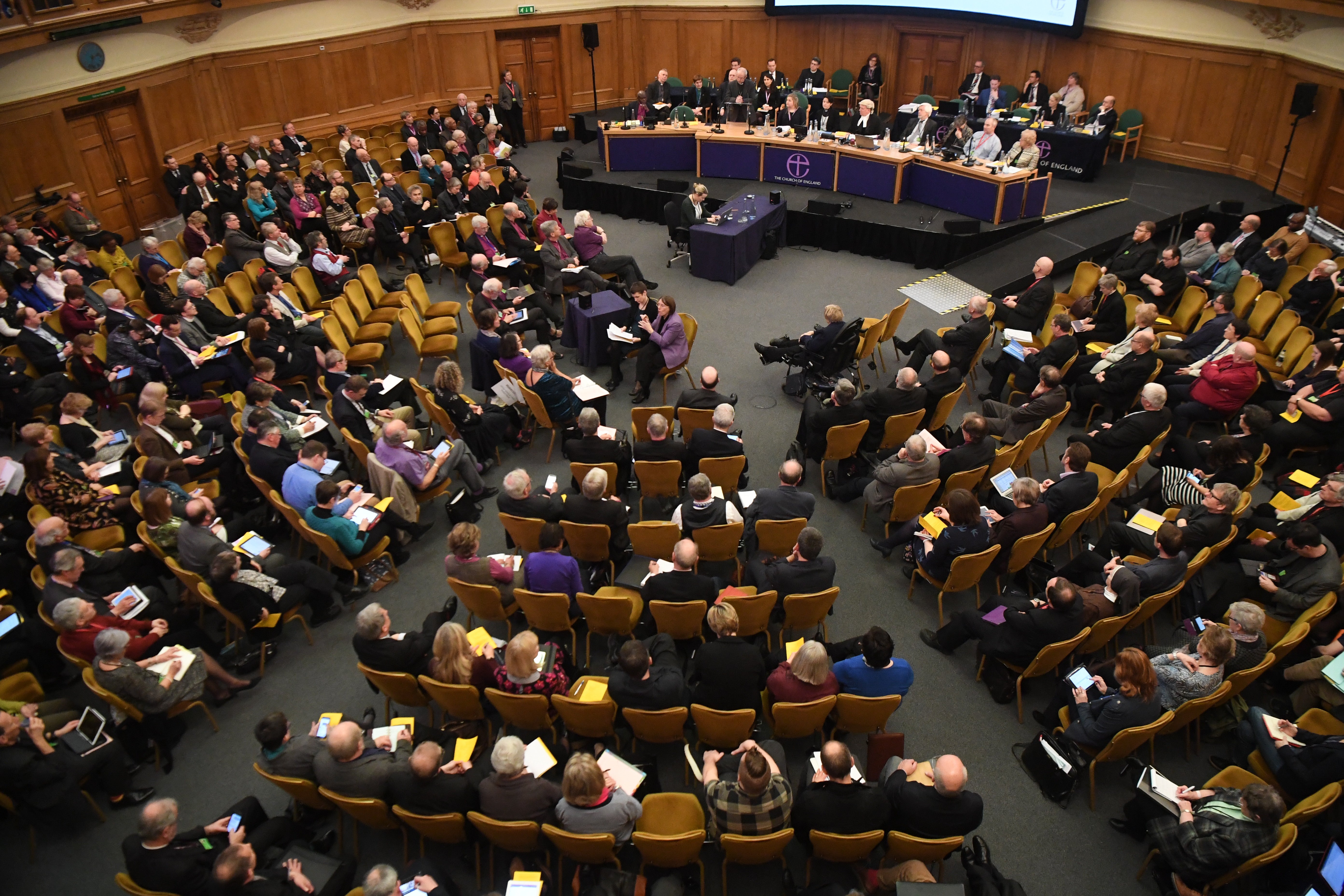Church of England Synod calls for more protection of child trafficking victims
It came during a debate on challenging slavery and human trafficking.

Your support helps us to tell the story
From reproductive rights to climate change to Big Tech, The Independent is on the ground when the story is developing. Whether it's investigating the financials of Elon Musk's pro-Trump PAC or producing our latest documentary, 'The A Word', which shines a light on the American women fighting for reproductive rights, we know how important it is to parse out the facts from the messaging.
At such a critical moment in US history, we need reporters on the ground. Your donation allows us to keep sending journalists to speak to both sides of the story.
The Independent is trusted by Americans across the entire political spectrum. And unlike many other quality news outlets, we choose not to lock Americans out of our reporting and analysis with paywalls. We believe quality journalism should be available to everyone, paid for by those who can afford it.
Your support makes all the difference.The Church of England Synod has urged the Government to ensure the protection of child trafficking survivors in the eyes of the law.
The national assembly voted 331 to zero in favour on calling on the Government to “ensure the proper protection of minors who are trafficked and enslaved is enshrined in law” and implement “effective access to support, accommodation, work and education for victims of modern slavery”, as outlined by the Independent Anti-Slavery Commissioner, Dame Sara Thornton.
The motion also “acknowledged the leading role that Her Majesty’s Government has played internationally in challenging slavery”.
Leading the debate, General Synod member Alistair Bianchi, from Durham Diocese, said it was important that the issue of trafficking and enslavement was being raised in light of the Nationality and Borders Bill, which is currently being debated in the House of Lords.
The bill seeks to curb English Channel crossings and change how asylum claims are processed.
It also includes the power to turn away vessels carrying migrants from the UK.
Mr Bianchi spoke about his time working in different churches and being put in touch with victims of trafficking and modern day slavery to help support them.
He told the Synod: “These young people who arrive on our shores are not illegal immigrants, they are victims, and as such should have the full weight of the law to support and protect them.”
Discussing the bill, he added: “There are considerable concerns that the lack of attention paid specifically to protecting children in the Nationality and Borders Bill could have negative impacts both on the child victims of trafficking and children subject to the immigration system who are at risk of exploitation.
“This risk can be seen in the Bill’s creation of a new slavery or trafficking information notice which would be issued to potential victims of modern slavery claiming asylum, setting out a limited time in which a potential victim must provide information to ensure they don’t damage their credibility.
“This disregards the impact of trauma on the ability of victims, especially children, to recall relevant details.”
He said there are also additional restrictions that “exacerbate existing barriers to potential victims of modern slavery”, such as if a potential victim has been sentenced or they could be denied access to support.
Mr Bianchi also raised concerns about age assessments, meaning those who have been coached into giving false stories and documents could be in a vulnerable position.
“It is necessary (an) effective system is in place to ensure trafficked minors receive support and protection. We must ensure the Government is held to account on this,” he said.
Rt Revd Vivienne Faull, Bishop of Bristol said current proposals in the Bill “fail to understand what being a victim of slavery means”.
According to Ms Faull, under the new legislation a victim may lose support if they have been convicted of a criminal offence with a sentence of 12 months or more anywhere or at any time.
She told the Synod: “Just imagine what risk that puts sex workers who have been trafficked and young people who have been caught up in county lines, where they’re pushed on to the front line and are found guilty in court in this country or in anywhere else across the globe.”
Canon Rachel Mann, of Manchester, added that she was also concerned about the bill.
“In the light of the Nationality and Borders Bill progressing through Parliament, the UK Government is in serious danger of damaging the good work of the ground-breaking 2015 Modern Slavery Act,” she said.
“The Nationality and Borders Bill risks making the lives of already traumatised and incredibly vulnerable human beings even worse…this legislation before Parliament threatens the human rights credibility of the UK government and, by implication, our nation.”